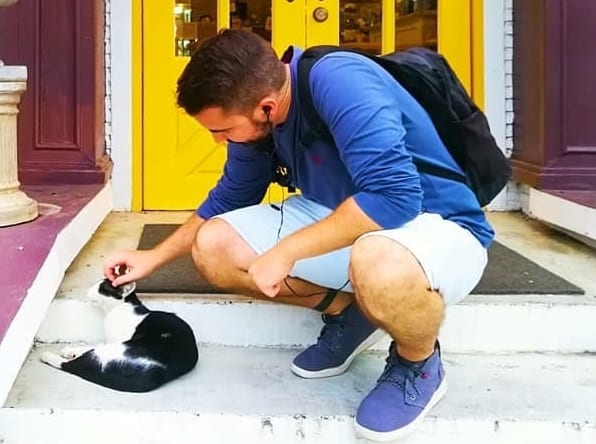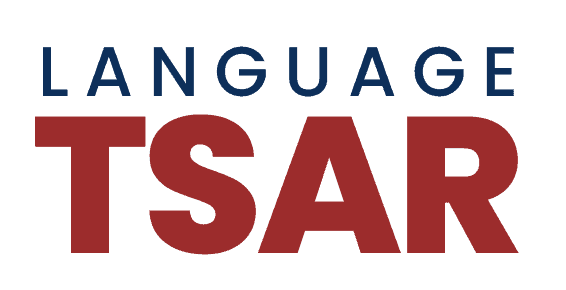As discussed with Jan Van der Aa (in Dutch) in the videos further down the page, I learnt my Dutch by beginning with a short course provided by the university in Utrecht (one hour/week for 3 or 4 months) and then self-study combined with speaking to Dutch natives in locations (in particular, my local cafe) where they accepted conversing with me in Dutch.
Looking to learn Dutch yourself? Check out our Discounts for DutchPod101.
After I left the Netherlands, I didn’t practice the language for a long number of years. However, a couple of years ago, I started taking one-hour long conversational style one-to-one classes with Dutch native speakers via Skype in order to reactivate my Dutch. This is a learning style that I highly recommend due to its frequency, affordability and convenience (no need to leave home for class).
Why Dutch isn’t actually that difficult
Despite what is commonly believed (i.e., what other foreigners say), Dutch is not actually a hard language for a native English-speakers to learn as:
1. English and Dutch are both Germanic languages so they share a lot of common vocabular
2. Many cognates derived from French and Latin
3. Dutch grammar does not have the cases of German so it is relatively easy
4. The sounds in both Dutch and English are similar as are the stress and intonation patterns
Why learning Dutch can be a challenge
The great difficulty for foreigners living in the Netherlands who would like to learn Dutch is that once a Dutch person hears a foreign accent (and especially an English-speaking one), they immediately switch to English. This makes it hard to learn Dutch in the Netherlands as it can adversely affect the learner’s confidence (especially in the beginning) and it greatly reduces the amount of feedback in Dutch that the learner receives as the reply from the native Dutch speaker comes in English.
Strategies to overcome this problem:
1. Find a cafe, bar, restaurant, shop etc where the people are willing to speak to you Dutch and appreciate that you are trying to learn their language. This is what I did personally. I went three or four times a week to the same cafe and spent an hour there chatting to the customers and workers alike in Dutch for an hour each time. This really helped to accelerate my Dutch.
2. Politely explain to the Dutch that you are in the Netherlands to learn their language and would prefer that they reply to you in Dutch. However, this takes a lot of energy and determination to do consistently.
3. Claim that you don’t understand English and in fact, your mother tongue is a lesser spoken one that the Dutch speaker is unlikely to know, e.g. Estonian or Hungarian, and explain that if they wish to communicate, they’d better stick to Dutch. (Please try this and let me know in the comments section below how your experience turns out)
Klik om dit artikel in het Nederlands te lezen!

Michael has been an avid language learner and traveler for many years. His goal with LanguageTsar is to discover the most fun and effective ways to learn a language. He is currently learning Japanese, French and Indonesian.



Comments are closed.